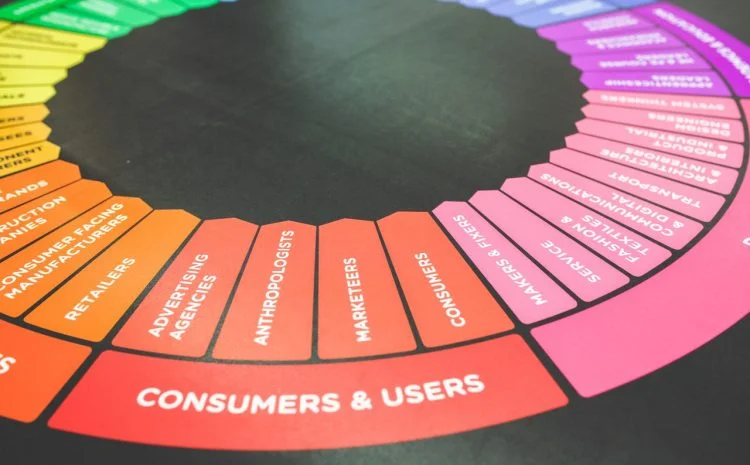Facebook Ad Checker – 12 Ways to Find Relevant Keywords
Facebook, with its many ad formats, is not just another advertising channel for your business. It is one of the most important components in any powerful marketing strategy. That’s why it is crucial to do the online marketing right. This means using the appropriate ad targeting strategies and testing your ads with a Facebook Ad Checker tool to make sure they get approved.
One of the ad targeting parameters most advertisers focus on is using the right keywords in their ad copy. This means that keyword research is very important when creating a Facebook ad campaign. It can:
- help enhance your lead conversion rates;
- find the best interests to target;
- increase traffic;
- bring in more customers;
- increase sales;
- build better engagement along the way.

Considering Facebook’s 20% text rule, which states that any image used as a Facebook ad should not contain more than 20% text, brands need to choose wisely what they include in the ad copy. More relevant keywords will increase your ad’s chances of getting past Facebook ad checker.
But Facebook targeting is not that easy. There are a lot of choices when it comes to keywords you can use. If you’re wondering which ones to choose, here are 12 ways to find relevant keywords for Facebook ads:
Determine the topics of interest in your niche
The first step when researching relevant keywords for Facebook Ad Checker is to determine the interests of your buyers. Learn what their needs, problems, and challenges are and see where these intersect with the solutions your company offers. Also, focus on the most frequent questions you get asked by your customers about your products. This way you will have a good starting point to create valuable content.
Look in your Facebook Insights
Facebook Insights is a wonderful tool for those who aim to track user interaction on their Facebook Fan Page. It’s a free tool and represents the easiest way to do keyword research and to know what engages your audience. It holds loads of information about Facebook users. Under the “People” tag, you can sort your target audience by demographics, age, behaviors.
Facebook Audience Insights
This is another section that can show you relevant information about people who click on your ad. Your Facebook’s audience profile data is the best starting point for your keyword research. Under Ads Manager, there is a whole menu that allows you to do keyword research based on the interesting demographic information.
Use keyword research tools
These resourceful tools are essential for copywriters that work on Facebook ads. They help them determine which keywords will make their ad be seen by larger audiences and which keywords they should be optimizing for.
SEMrush is one such tool, and it’s a great asset to have. It provides users access to data about how popular some keywords are based on how many searches they get, as well as their CPC Adwords price, and how competitive a certain keyword is.
Moz is a great tool when it comes to SEO thanks to its Keyword Explorer feature. With a simple interface and easy-to-use controls, Moz analyzes a keyword’s monthly searches and shows the results both numerically and as a visual representation.
Also Read:
The Most Important Facebook Ad Metrics You Should Follow Up & Optimize [2019 Update]
04 Excellent Tips For Creating Facebook Ads That Convert.</a
21 Quirky Facebook Ad Ideas You Can Use.

Use Facebook Ad Intelligence tools
Facebook Ad Intelligence tools help you analyze competitors’ ad strategies. One such tool is PowerAdSpy, which enables users to spy on competition’s ad campaigns and track all their ads, ad copies, landing pages and so on. It runs in-depth analysis in order to create niche-specific marketing strategies.
Its vast ad database of more than 50,000,000 real-world ads is heaven for advertisers looking for inspiration when creating their own ad campaigns. Some of the most outstanding features of PowerAdSpy include:
- ability to follow how many competitors you want;
- you can filter ads based on interests;
- lets you view ads live on Facebook;
- discover targeting and location details;
- bookmark the best ads.
Stalk your current customers’ Facebook profiles
By checking your customers’ personal Facebook profiles, especially those who engage regularly with your brand, you have high chances of learning about their interests and likes. These clients could also engage with other brands similar to yours. This way you will get new keyword ideas from their interests to target your ad.
Lay terms
This is possibly the simplest way to prepare relevant keywords for your social ads so that they are optimized for Facebook Ad Checker. What you have to do? Just think about common terms that people would use to describe your business. If, for instance, a client can’t remember your company’s name, what words would they type in Facebook’s search bar to find you?
Prepare specifically for Facebook advertising
When researching the right keywords for your Facebook ad campaign, think of the words you want your brand to be associated with. Also, think of keywords related to popular products/services that will look good on your Facebook page.
Create a keyword list
Beware that different keywords have different demand and, consequently, different traffic potential. That’s why it’s important to determine which keywords are more profitable to bid on. Organize them into semantically-related groups.
Regularly update your niche keyword list to make them competitive
The list of keywords you are using must regularly be refined in order to make sure you use relevant and valuable keywords. One way to do so is by using WordStream’s Free Keyword Tool. It will provide you with a comprehensive list of search queries and their Google Search Volume.
Use Social Bakers Solutions
Social Bakers Solutions is a great tool for social media analytics and can help you identify new influencers, trends, and so on. It can help you determine relevant keywords for your social ads.
Use the “holy” Google and its Trends section
Sources outside of Facebook are equally valuable when it comes to finding the most relevant keywords. And you might not believe it, but Google Trends might turn out to be the holy grail of keywords. Look into categories related to your niche in order to find relevant keywords.






